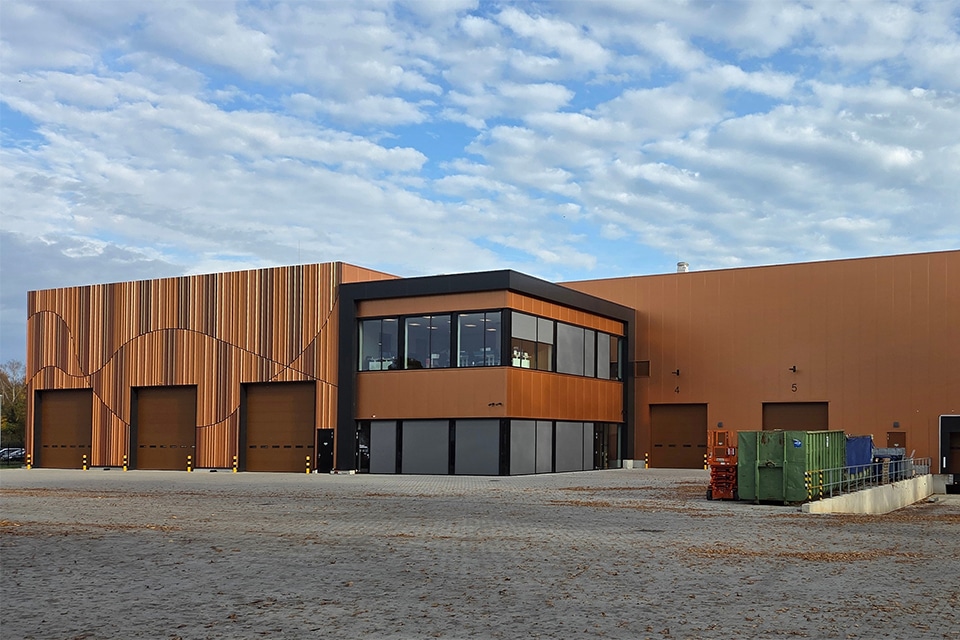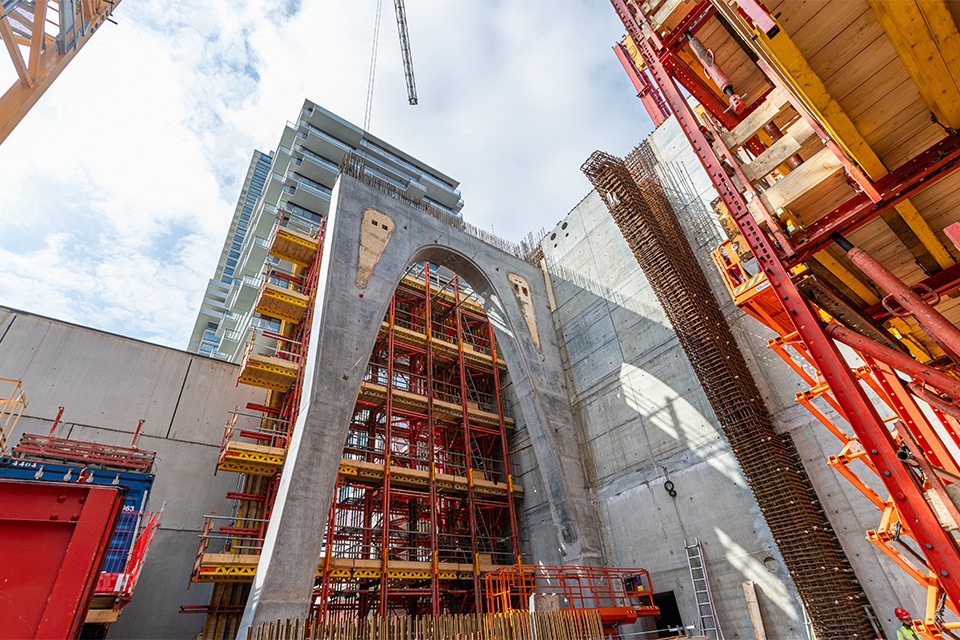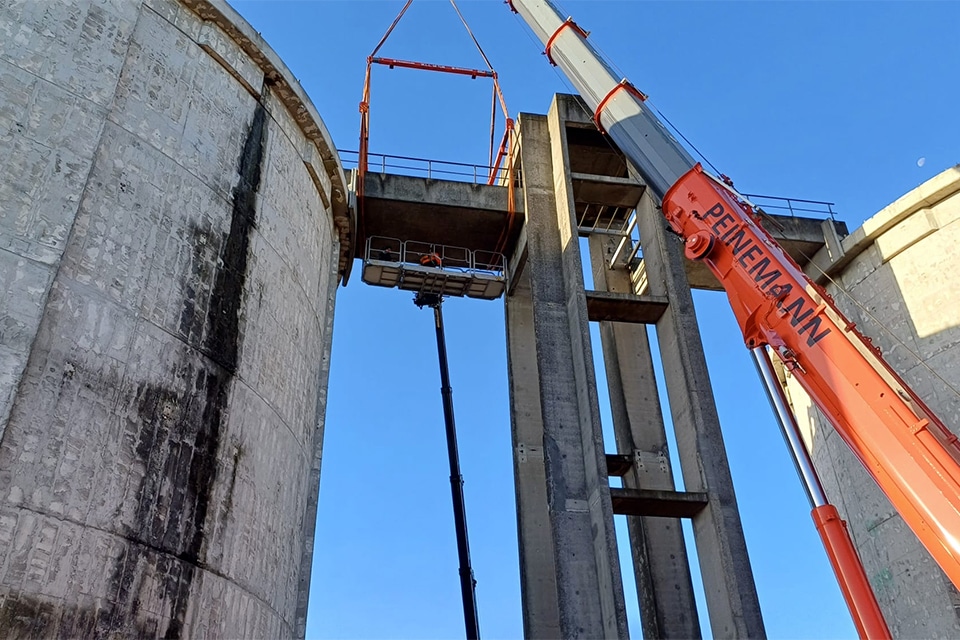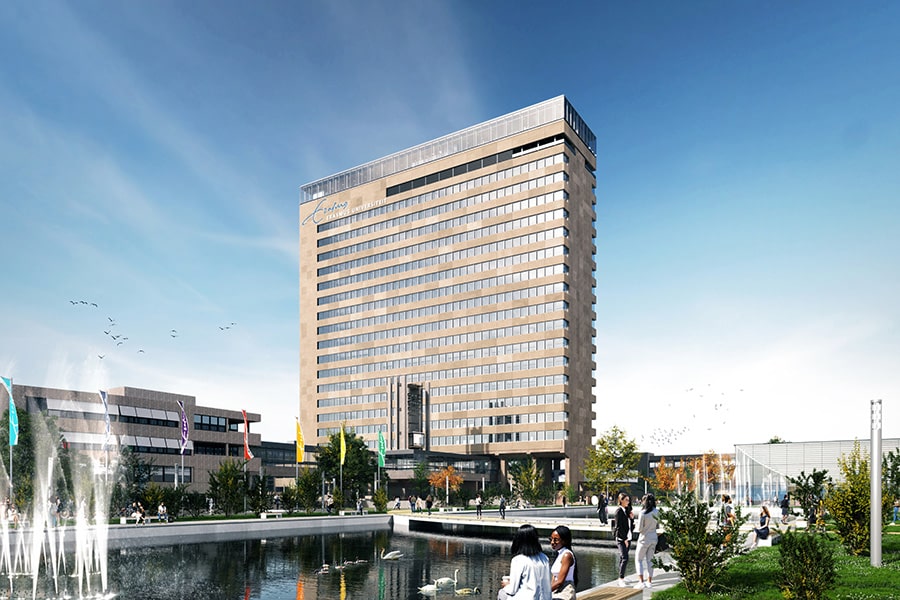
'Implement environmental safety as early as the VO phase of a project'
Many urban developments assume an ideal final picture. The steps that occur during that development, such as the construction phase or surrounding building projects, are not considered. This observes Theo van Kampen, senior consultant at Aboma. He advocates bringing design and execution closer together. And that starts with "hardcore" safety.
Van Kampen advises and supports his colleagues on environmental safety on construction projects. "We deal with issues that affect the safety of the immediate environment," he explains. "Think about falling objects, rotating cranes and construction traffic driving on and off."

Building code guidelines
Van Kampen continues: "In ensuring that safety, we follow the guidelines of the Building Code. One important guideline concerns determining the construction safety zone. This is the zone where you must stay outside during demolition, lifting or other high-risk work. The Building Code also requires the use of an immediate area safety coordinator. In addition, the Building Code allows municipalities to require that preliminary consultations be held with the client and/or that a construction safety plan be submitted with the application for the environmental permit. During construction, municipalities are authorized to enforce for safety." The Buildings Decree will be replaced by the Built Environment Decree on July 1, 2022, as part of the Environment Act.
Too much emphasis on construction phase
"In complying with the safety guidelines in the Building Code, too much emphasis is placed on when the contractor starts building," Van Kampen says. "It is better to implement the guidelines as early as the VO phase of the project. So my advice to the urban designer is: look through the eyes of the contractor. Include things like the construction safety zone, construction roads and surrounding projects in your urban plan. Make sure the area to be developed looks attractive to the potential buyer or future user during construction activities. Visualize the different steps in the project and include the surrounding area. This way you create commitment and the development and construction process runs more smoothly and efficiently."

Construction safety zone, lifting zone and lifting area
"What matters is that you get concrete as early as possible," Van Kampen continues. "That's not even that complicated. In the VO phase, the height of the building, the hoisting load and the elements to be hoisted are already known. Based on that, you can determine the construction safety zone, the lifting zone and the lifting area. And if you know where the unloading area is, you can cleverly locate the supply and return routes. The VO phase is also the time to conduct a risk analysis in consultation with the surrounding parties. Herein lies an important task for the immediate area safety coordinator."
Alignment
Not only on a project basis, but also on a national level, Van Kampen advises on environmental safety on projects. "Coordination is also the key word here. Between municipalities, but also between municipalities, environmental services and road authorities. The better the coordination, the clearer everyone's role. And that in turn leads to more concrete requirements towards developers and builders. In this way we can together take the 'next step' in safe, well-organized built environments."




